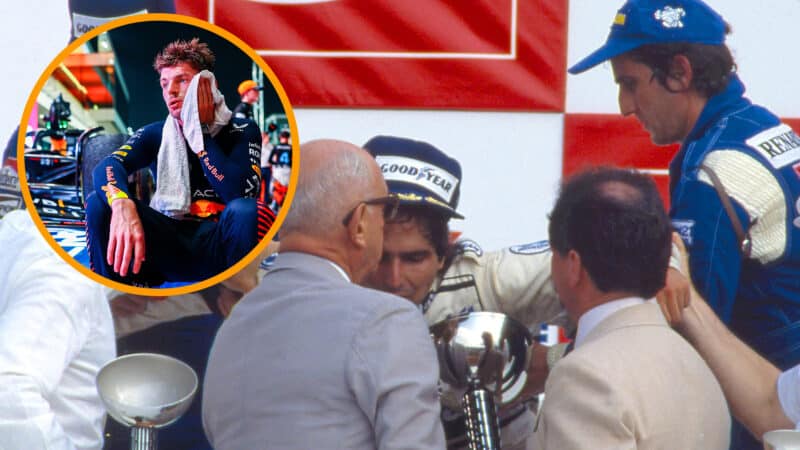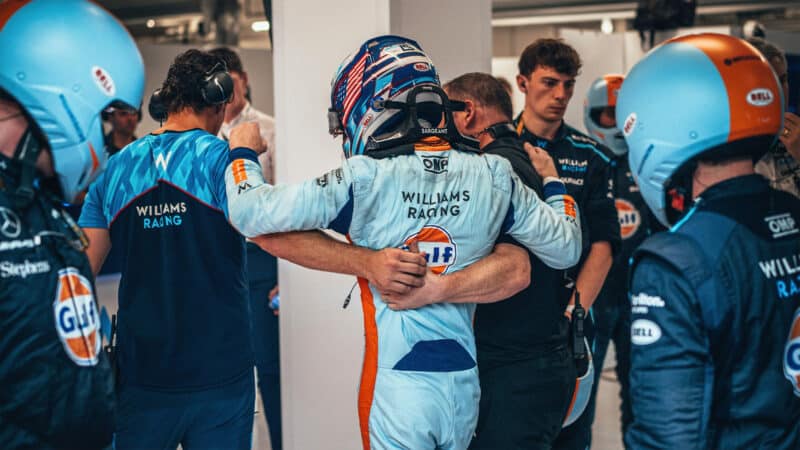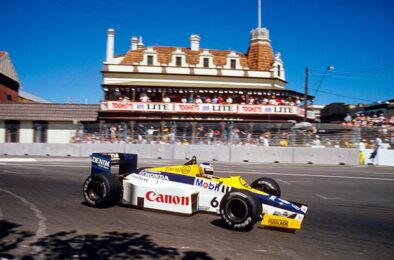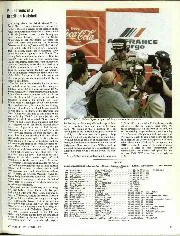At this point, more than a minute after the collapse, Rosberg stands up, Bernie returns and Keke takes a swig of water, motioning to The Bolt that Nelson will be OK. Suddenly, Piquet gamely re-emerges, dripping with water and his overalls undone to take his place gingerly back on the top step. He zips up and the ceremony continues. Drama? What drama?
Our man AH spotted Prost’s reaction: “While Nelson Piquet was being revived by the side of the winner’s rostrum, he probably didn’t see Prost’s amused grin. But at least the winner could be satisfied that he had lasted the course: his team-mate Riccardo Patrese had to give up and retire, almost unconscious with exhaustion long before the finish.”
Of course, Prost had even greater reason to smile when subsequently both Piquet and Rosberg were disqualified! Brabham and Williams were caught playing fast and loose with the weight regulations via their so-called ‘water-cooled brakes’, their cars fitted with tanks that required topping up post-race to bring the cars back to the weight limit. Two great drives had been, after an awful lot of effort — Piquet challenging early leader Gilles Villeneuve and narrowly avoiding being wiped out by the Ferrari when he made his move — all for nothing and cheeky Prost, having nursed a misfire from his Renault turbo V6, vaulted from third to first! And all in the wake of his win in the January season opener in South Africa which had been overshadowed by the drivers staging their famous pre-race strike over a superlicence row. Rose-tinted glasses are all too easily to slip on, but F1 really wasn’t much fun in 1982. Imagine all that – plus the stream of tragedy that followed in that dreadful season – playing out under the super-critical microscope of today’s world.
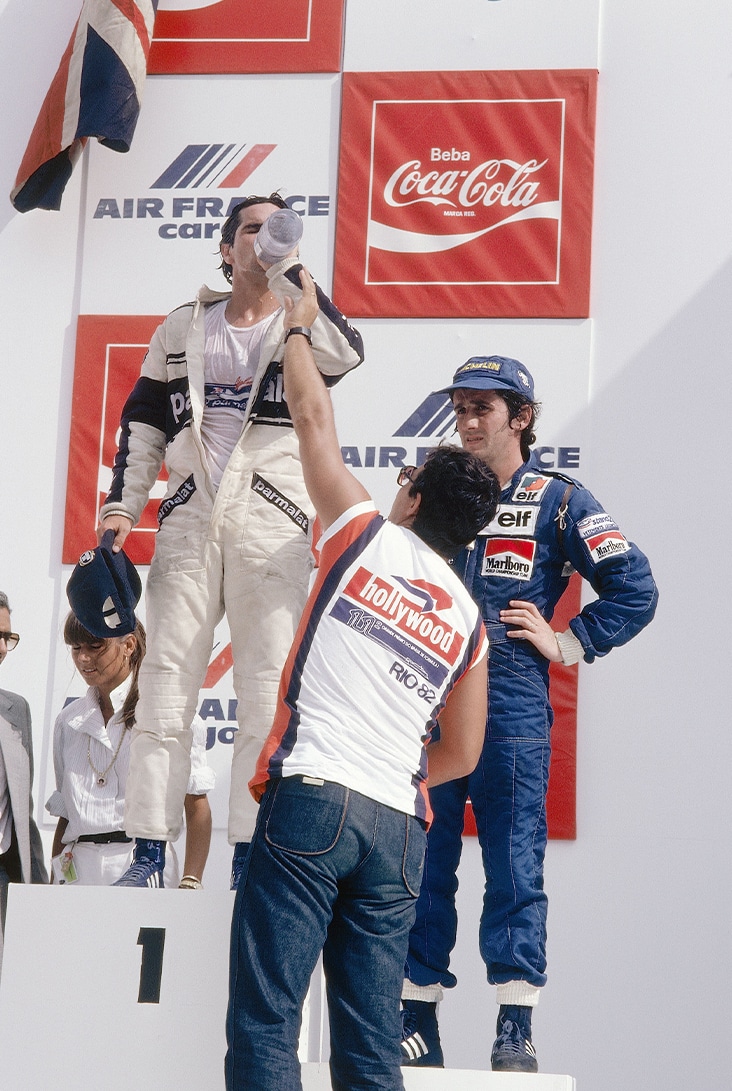
Piquet douses himself with water on his return to the top step
DPPI
On Piquet’s faint, you might think Motor Sport’s continental correspondent Denis Jenkinson would have taken a ‘macho’, unconcerned view given his usual hardened perspective on safety matters. But in this case Jenks makes it clear the incident is no laughing matter – even if he does recall an amusing tale from a similarly gruelling example from years earlier.
DSJ refers to both Buenos Aires 1955 and Reims 1959, two infamous occasions when drivers struggled with heat exhaustion. From the race in Argentina, he recalls a scene after the race. “Later Stirling Moss was telling me about it and how the Mercedes-Benz team, for whom he was driving, had a sort of medical tent behind the pits in which he was able to lie down. Mike Hawthorn and Peter Collins were listening to this narrative and said to Stirling ‘Didn’t you get a jab with the needle?’ to which Moss asked ‘What needle?’. Hawthorn and Collins then explained that they had staggered off to the circuit medical centre where an Argentinian doctor had injected something into their arms which made them like new. They had stormed off from the start of the second heat but then the drug had worn off and they slowly pooped out again. In his special tent Moss had none of this sort of treatment and had still been feeling clapped-out when he started the second Heat. He said, ‘I was wondering what got into you two at the start of the second Heat, I just couldn’t believe you were fitter than me’. They were the ‘good old days’…”
